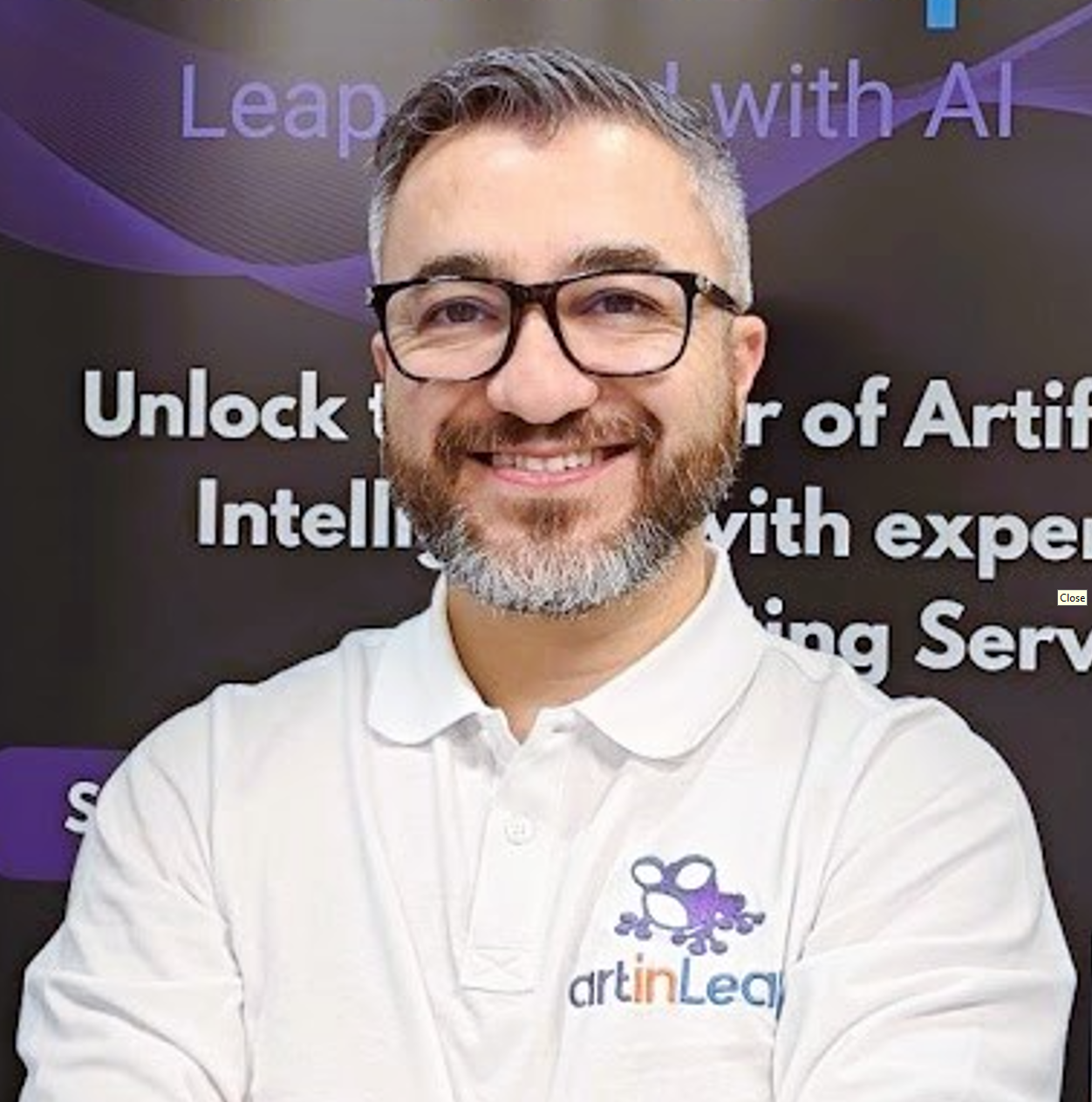Interview with Pablo Fernández of ArtinLeap
By Pascale Caron
Our startup, based in Sophia Antipolis, was created to transform how businesses interact with artificial intelligence. We help companies adopt AI while emphasizing ecological responsibility and human-centered ethics. We offer tailor-made solutions that promote sustainability, protect data privacy, and address complex business challenges. With our assistance, companies optimize their operations while minimizing their carbon footprint.
We develop eco-friendly AI models, known as Small Language Models (SLMs), designed to reduce energy and resource consumption. We also create multi-agent systems where AI works closely with human users to enhance organizational efficiency.
We automate processes using intelligent chatbots capable of managing repetitive tasks while enriching user experience. Additionally, we support businesses in the strategic integration of AI, ensuring data confidentiality and security. Finally, we offer AI training programs tailored to universities, schools, and companies to prepare future generations for this revolution.
We recognize that challenges such as cultural resistance to AI adoption, unclear goals, or lack of expertise often hinder projects. To address these, we implement a methodical and gradual approach, both technologically and organizationally. In short, we don’t just develop innovative solutions; we also support the necessary change to make the most of them.
What unique aspect of your field drove you to integrate AI, and how has it transformed your operations?
We are intrinsically linked to AI, as our very design was based on leveraging it to revolutionize commercial actions. From the outset, we identified a critical need among our clients: automating processes while ensuring data security and ecological sustainability. Thus, we devised six adoption steps to guide businesses in their digital transformation with AI. These include comprehensive evaluation, clear strategic definition, development of proofs of concept and systems, integration with existing infrastructures, employee training to overcome resistance, and rigorous follow-up to ensure data quality and relevance.
Applying these same practices to ArtinLeap, we developed our ambitious language model, the LLM, based on decentralized cloud technology. This innovation addresses growing concerns over data privacy. This model paved the way for the finalization of our multi-agent system, EcitonX.
We use AI daily in our operations. For more efficient coding, Copilot is our ally. We also rely on intelligent note-takers during meetings and assistance for creating textual or visual content. The impact is immense: we are not only faster but also more creative.
What unexpected innovations have emerged from adopting AI in your company?
The creation of EcitonX, a multi-agent system with a human-centric purpose, stands out as one of our most significant advancements. This system is designed around the concept of having an AI agent for each team member — a digital partner reflecting the employees’ roles and responsibilities. These agents do more than provide information; they actively engage with company employees, contributing to informed, participatory decision-making. They autonomously communicate with each other, facilitating smooth and efficient task coordination.
This ability to collaborate not only among themselves but also with humans represents a major advancement for ArtinLeap. Our long-term goal is to integrate this system into a hierarchical network of autonomous agents, potentially revolutionizing collective work and productivity within organizations.
How did you overcome cultural challenges during AI adoption?
AI at ArtinLeap was seamlessly integrated due to our identity as “digital natives.” However, during our consulting missions, we often encountered significant challenges in companies less tech-oriented. These stemmed mainly from resistance to change, legitimate fears of being replaced by AI, and the mistaken perception of AI as a cost center rather than a growth driver.
This is why we start by evaluating a company’s AI maturity.
We first assess leadership engagement and their understanding of AI’s potential. We ensure management is ready to actively participate in the integration process, as their support is crucial for the success of any organizational transformation.
Next, we examine the existing infrastructure and the quality of available data. A solid technological foundation is required for AI solutions to thrive. Competence and expertise in AI and data management are also evaluated. We determine whether the organization has the talent to carry out the project or if investments in training are necessary.
It is essential to ensure the company and its employees trust automated systems to support decision-making. AI governance is another aspect we inspect, ensuring appropriate policies and procedures are in place for responsible technology use.
Finally, we observe how AI is integrated into daily operations and products. Employees must be involved throughout the process. With tailored training programs, AI is perceived as a partner in progress rather than a threat.
We guide businesses toward smooth AI adoption, overcoming resistance for continuous innovation.
What positive changes have you observed in your team dynamics thanks to AI?
Introducing AI at ArtinLeap has led to notable transformations. With AI Copilot, we’ve been able to code more efficiently, drastically reducing errors and speeding up development cycles. This frees up time for innovation projects, stimulating group creativity.
Customer satisfaction has also increased. Our focus on sustainable, human-centered solutions has fostered a sense of pride and motivation within the team. Employees feel not only valued but also part of a mission that positively impacts society.
What essential advice would you give to SMEs hesitant to adopt AI?
For SMEs, adopting AI has become an indispensable necessity to remain competitive in an ever-evolving market. My advice is not to see AI as a threat or a mere cost but as an investment and a tremendous opportunity to enhance innovation capacity and operational efficiency.
AI should be integrated gradually and methodically, starting with understanding its benefits and risks. Leadership must commit fully from the outset, as they will act as catalysts for positive change throughout the organization. They don’t need to become AI experts but should understand how AI can transform processes and support business goals. This involves allocating a dedicated budget, establishing a clear and coherent AI strategy, and defining a company-wide AI usage policy. Once management leads by example, employees are more likely to engage.
Continuous employee training is key. The true challenge is not replacing humans with AI but fostering collective intelligence that blends the two. By starting with small pilot projects, companies can prove AI’s feasibility and added value, motivating teams and strengthening their commitment. This enables improved productivity, customer satisfaction, and even the creation of new business opportunities. By adopting a philosophy where AI complements and amplifies human capabilities, companies can achieve significant advances in competitiveness and sustainable growth.











